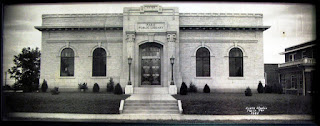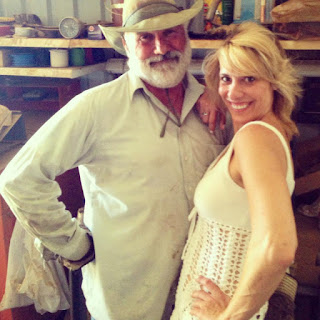Thinking about “Home” - theparisnews.com: Lifestyles
Thinking about “Home” - theparisnews.com: Lifestyles:
 Home. Such a simple word. Such great feeling. So much to talk about,
which is why I chose Toni Morrison’s 2012 book “Home” to review at the
Paris Public Library in October. (If you missed it, there will be
another book review in January).
Home. Such a simple word. Such great feeling. So much to talk about,
which is why I chose Toni Morrison’s 2012 book “Home” to review at the
Paris Public Library in October. (If you missed it, there will be
another book review in January).
This opening is gripping, and the book is no less substantive despite its scant 160 pages. “Home” is the story of growing up, of finding one’s self, of finding that home has made a lasting impression on you. Perhaps, on a grander scale, it is also a reconciliation of the awareness and owning of our country, for all of its good and bad.
“Home,” while lacking the mention of almost all color references except in the ending of the book, is replete with matter-of-fact imagery of the pre-civil rights era, as well as with rich characterization so you can vividly picture each person.
“Home” is about Frank, a Korean vet who was treated equally in the war but slips back into segregated America as it if it is still his norm. But Frank has bigger worries, because he is haunted by the war and because he must go on a quest to find and save his sister, who has lost herself during his absence. A journey book is always about growth and reflection, a very American theme, in the fashion of Mark Twain and Charles Frazier ("Cold Mountain"), borrowed from the Greeks in the original travelogue, "The Odyssey."
But that is just my opinion. So I hope you will turn off your gadgets of choice and read it for yourself, then talk with me or someone else about what you think the title means. Who knows, you might just save your life.
 Home. Such a simple word. Such great feeling. So much to talk about,
which is why I chose Toni Morrison’s 2012 book “Home” to review at the
Paris Public Library in October. (If you missed it, there will be
another book review in January).
Home. Such a simple word. Such great feeling. So much to talk about,
which is why I chose Toni Morrison’s 2012 book “Home” to review at the
Paris Public Library in October. (If you missed it, there will be
another book review in January).
We had a fun discussion, but I saved one issue for you, hoping
you will rush out and read the short book, and then get back with me on
this one last burning question: Why is the book named Home?
Morrison begins the book with this poem:
Whose night keeps out the light /
In here? Say, who owns this house? /
It’s not mine. I dreamed another, sweeter, brighter /
With a view of lakes crossed in painted boats; /
Of fields wide as arms open for me. /
This house is strange. Its shadows lie. /
Say, tell me, why does its lock fit my key?”
In here? Say, who owns this house? /
It’s not mine. I dreamed another, sweeter, brighter /
With a view of lakes crossed in painted boats; /
Of fields wide as arms open for me. /
This house is strange. Its shadows lie. /
Say, tell me, why does its lock fit my key?”
This opening is gripping, and the book is no less substantive despite its scant 160 pages. “Home” is the story of growing up, of finding one’s self, of finding that home has made a lasting impression on you. Perhaps, on a grander scale, it is also a reconciliation of the awareness and owning of our country, for all of its good and bad.
“Home,” while lacking the mention of almost all color references except in the ending of the book, is replete with matter-of-fact imagery of the pre-civil rights era, as well as with rich characterization so you can vividly picture each person.
“Home” is about Frank, a Korean vet who was treated equally in the war but slips back into segregated America as it if it is still his norm. But Frank has bigger worries, because he is haunted by the war and because he must go on a quest to find and save his sister, who has lost herself during his absence. A journey book is always about growth and reflection, a very American theme, in the fashion of Mark Twain and Charles Frazier ("Cold Mountain"), borrowed from the Greeks in the original travelogue, "The Odyssey."
Cee (Ycidra), Frank’s sister, thinks maybe she’d have learned to
think for herself if Frank hadn’t been there to constantly protect her.
She is an accident waiting to happen, a consummate victim, so trouble
finds her when Frank leaves for the war. Cee’s journey is tied up with
learning her own self worth. True to Morrison, Cee encounters both
eugenics and natural healing, and learns that book smarts do not count
for everything.
Morrison trueists do not appear to like this book very much
because it doesn’t use the magical realism style they all love. If that
includes you, know this is American realism fiction, and take the time
to think about more than just the story. There is so much to it that it
is perfect for deep thinking such as in a classroom or through a book
club discussion. Perhaps that is why Morrison chose the title, because
there is always so much to consider when thinking of our own definitions
of the word “Home.”
But that is just my opinion. So I hope you will turn off your gadgets of choice and read it for yourself, then talk with me or someone else about what you think the title means. Who knows, you might just save your life.
—










Comments